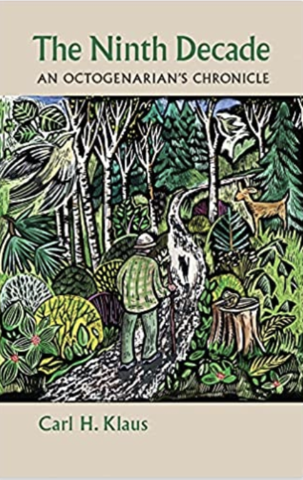
Nearly fifty years ago, Carl Klaus introduced me to English Restoration drama in a graduate course at the University of Iowa. Good paperback editions existed of plays by the best- known dramatists—Dryden, Etherege, Wycherley, Congreve—but only a library copy was available for Thomas Southerne's The Wives Excuse. Carl assigned me to report on it in class. That began my immersion in Restoration drama and eventually led to my wide-ranging dissertation, The Problematics of Marriage: English Comedy 1688-1710, directed by Carl in the English Department and Judith Milhous in Theatre. I remember Carl sticking up for my approach to the subject matter at my dissertation defense. My first scholarly book, Thomas Southerne, followed a few years later.
Academic Jobs for Restoration specialists were few, and when I became an unemployed Ph.D., Carl advised me to pursue a year of post-doctoral study, concentrating on composition, rhetorical theory, and nonfiction literature, courses that would eventually become a Masters Program. Though my employment at Central Michigan University initially began as a result of my having taught Ancient and Biblical Literature at Iowa as a teaching assistant, composition and nonfiction became the major focus of my academic career. I wrote a a textbook for composition classes, a book on nonfiction writers, and, with Carl's editorial input, a study of a major essayist, E. B. White. Eventually, I became an essayist and memoirist.
Carl had co-written or co-edited several textbooks and anthologies—Elements of the Essay was a favorite of mine—but as he neared retirement, he focused more on his own nonfiction narratives. An avid gardener, he published My Vegetable Love: A Journal of a Growing Season (1996) and Weathering Winter: A Gardener's Daybook (1997)—the second book, drawn from a portion of the first book that his commercial publisher preferred to omit, was published by University of Iowa Press. Later it also published Taking Retirement: A Beginners Diary (1999). All three books grew out of frequent journaling, the process of thinking by writing constantly—often daily—rather than standing back from composition in hopes of something eventually rising to demand expression. I don't use that method often enough but relied on it for portions of my first travel memoir and for writing weekly radio essays years ago and, presently, for composing weekly blog posts (like this one).
Everything I've written here was set in motion by discovering Carl Klaus' newest book, The Ninth Decade: An Octogenarian's Chronicle, covering his thoughts about aging. Each chapter focuses on a six-month period in his life from his eightieth birthday to his eighty-eighth. The book, he claims, is "a product of good luck and irrepressible curiosity" that grew out of his desire to learn what others had written about their eighties and, unable to locate "personal books on the subject," encouraged recording his own experiences and reactions. The format resembles his approach to composing the gardening and retirement books as well as Letters to Kate, centered on the loss of his wife, the writer Kate Franks. His letters updating Kate about his efforts to adjust to her absence are a form of confessional grief therapy that helps him arrive at a place where he can continue to live a life without her, a life he never wanted to be living.
In The Ninth Decade he sets out to chronicle his adjustment to his eighties by recording not only what he thinks and feels about his health and his most intimate relationships but also by noting "the experiences of other octogenarians—loved ones, friends, acquaintances—and thereby produce a collective depiction of life after eighty." Each essay is based on notes made throughout a six-month period and recounts encounters with friends, family members, and acquaintances, health issues for him and his beloved, experiences during brief vacations or excursions. Throughout he expresses his innermost reactions to moments of pleasure, pain, and, inevitably, grief, as many of the people he worked with and socialized with pass away.
My copy of The Ninth Decade now has about a dozen dogeared pages, some of them reminding me of people I knew in Iowa, mostly my professors or advisors, tactfully identified by first names only, and some of them reminding me of aspects of aging I'm beginning to be too aware of myself. I'm a decade younger than Carl, and though I suffer from few of his ailments, I identify with certain aspects of his life: his efforts at and resistance to decluttering, his problems with hearing or with mobility or, most familiar, with memory. I'm not that far from eighty. I'll keep Carl's book handy for when I reach it, to give myself notice of what I might expect, what likely lies ahead of me. I'll also hope to face up to aging as well as he has.
Note: Carl H. Klaus, The Ninth Decade: An Octogenarian's Chronicle. Iowa City: University of Iowa Press, 2021.
Laura Farmer. "Writing is a 'mind-altering endeavor' for Carl Klaus." The Gazette. Oct. 21, 2021. 7:00 am
Root, Robert. Interview with Carl Klaus, Fourth Genre: Explorations in Nonfiction 14.1 (Spring 2012): 125-145.